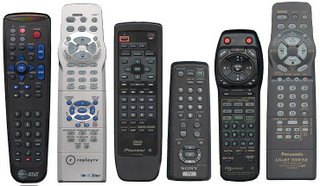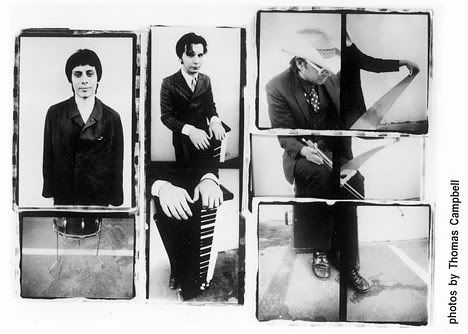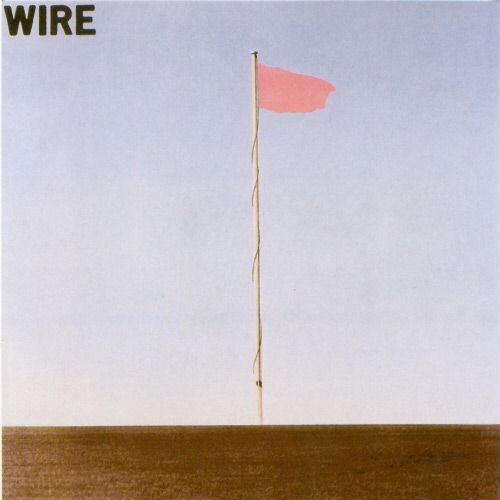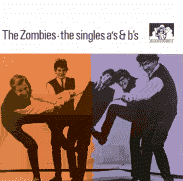The democratization of the television
 I don't watch a lot of TV, but I've been saying for a while now that the way programming is currently paid for is going to come crashing down. Hard. The fall will almost certainly follow an epic legal struggle between networks and viewers, much like ongoing war between the RIAA and music downloaders. I'm sure YouTube, Google, and iTunes will all be involved (will the cable news coverage of that be facinating or what?), but in the mean time, the Sunday Times gives up some details (via Free Press) of the coming war. Back when there were 12 channels you had to get up to change, your standard 30 second commercial was fine. The audience was pretty much captive - the only way to avoid advertising was to leave the room. But the remote control and hundreds of channels led to channel surfing, and when VCRs went mass market, network execs were shocked, just shocked, at the idea that viewers might ...the patent application revealed that the proposed design would uphold the right to avoid commercials, but only for those who paid a fee. Those disinclined to pay would be prevented from changing channels during commercials [and] the new, improved [DVR] would detect when a commercial segment was being displayed and disable the fast-forward button...I have a feeling that most Americans would consider this a direct assault on their Constitutional rights. Besides the IRS, I'll bet the FCC is the most loathed agency in the US government. Seriously, you don't fuck with television in this country. Really though, an end to the ad-sponsored model of television programming would not be the worst thing in the world. With technology allowing content to cater more and more closely to viewers' actual interests, it might just be exactly what an industry that hasn't had a new idea since the reality show needs. The FCC recently found that allowing cable subscribers to pick channels a la carte would actually cost them less, on average. When you think of how many channels you just don't watch, it is amazing that the cable industry has been able to prevent this from happening for so long. Unsurprisingly, the FCC found numerous flaws in previous industry reports saying that a la carte was unworkable and would cost consumers more anyway. The popularity of HBO's edgy, uncensored series like Six Feet Under, The Sopranos, and Sex in the City shows that people are willing to pay for quality programming if it interests them. The fact that the shows are ad free is a bonus. With the ubiquity of On Demand-style purchasing, why not take this model even further? Imagine turning on your TV to find a navigation screen similar to what that of digital cable services. You can surf around, see what's on, and if something piques your interest, you can buy it for a buck or two. The show would be stored on a hard drive in you set, and pricing levels would vary according to popularity, length, and other factors (maybe reruns would be half price!). Time slots would disappear, ratings would move from the arcane Nielsen system (that no one quite understands) to one based purely on the number of people who buy the show. You could even imagine new channels springing up offering the kind of DIY production you currently find on YouTube and other sites. I could see Google getting into the game by creating a searchable online listing, allowing you to buy and watch anything, anytime, with a few clicks. Aren't there times when you are just dying to see a certain episode of MacGyver, or maybe to run through the first season of Transformers? The copyright holders would get revenue from shows that aren't currently bringing in the a lot of ad money, Google would take a cut, and the viewer is able buy and watch pretty much anything ever aired. Not a bad deal. The networks, of course, would oppose this all the way. By putting a price on each program, I would guess overall viewing would decrease. Since channel surfing would be difficult, sitting mindlessly zoned out in front of the tube would not really be an option. Television would be a much more deliberate act, like going to the movies, or at least renting one. Then there are the advertisers, who would be forced to find another way to market their products. Any startup that tried to implement this model would have to gain access to the telecom network, which might not be a simple task. But it seems to me that this is the next step in the democratization of information and entertainment. Demand for such freedom is clear from the current direction of the internet (think myspace, YouTube, Flickr, and other sites where users define content). Television is just the next logical step. |
















